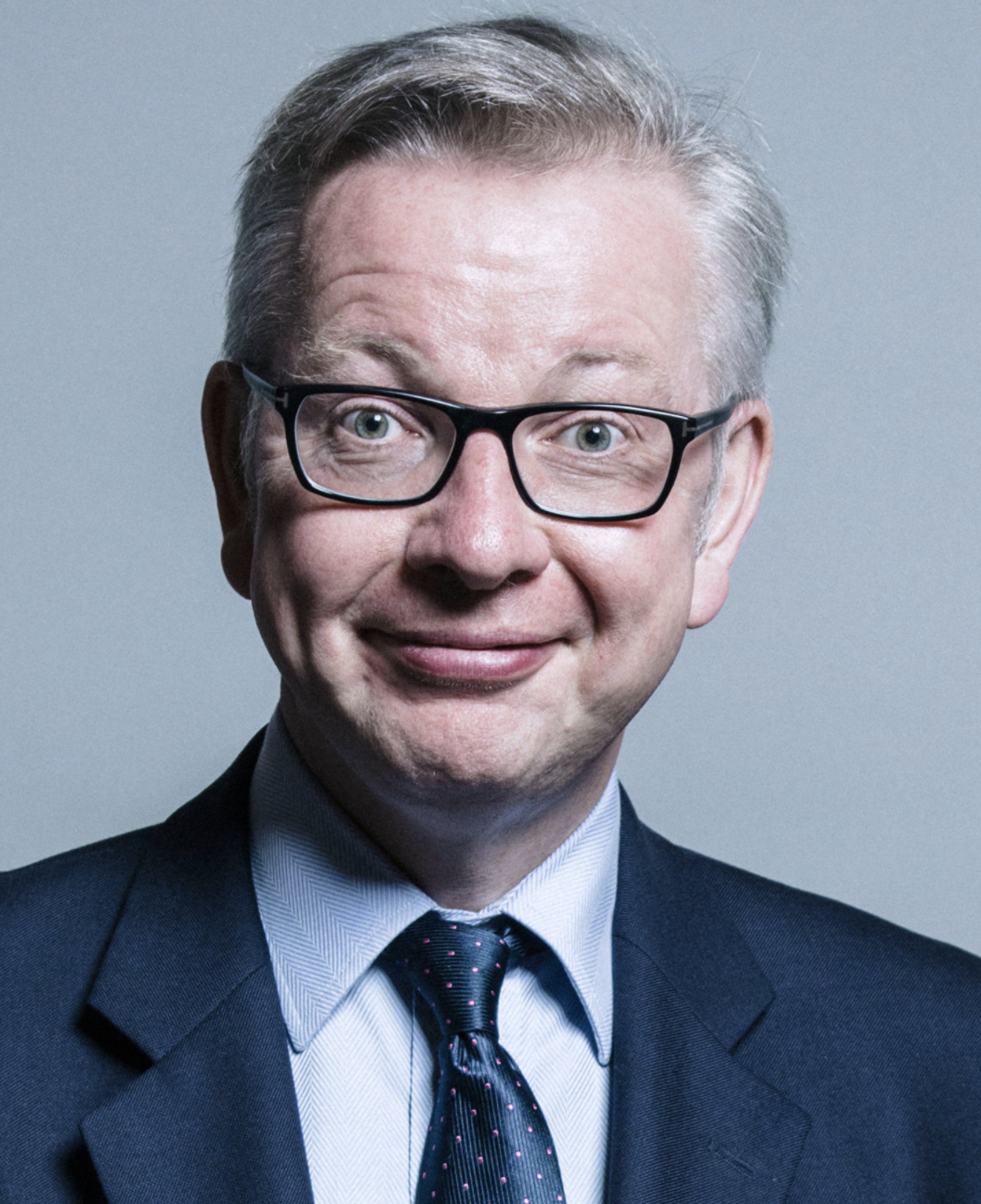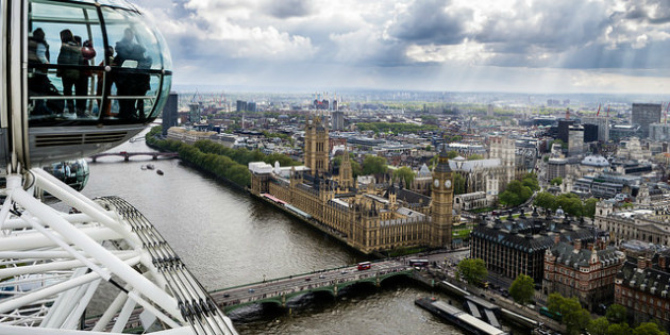 Andrew Blick considers the implications of the COVID-19 emergency for the UK constitution, ranging from the effectiveness of specific laws to the socio-economic role of government.
Andrew Blick considers the implications of the COVID-19 emergency for the UK constitution, ranging from the effectiveness of specific laws to the socio-economic role of government.
The coronavirus emergency is profound in its constitutional implications. They involve both the immediate response and the longer-term context. Coronavirus is not only a problem for any one country or region in the world, but for all of them, and its impact is more severe for each, precisely because of its consequences for all.
When considering the constitutional implications of COVID-19, it is necessary to take into account that this episode has manifested itself against a pre-existing background of doubt about certain aspects of the UK constitution. For instance, Brexit has produced controversy around subjects such as the nature and effectiveness of constitutional conventions, the relationship between representative and direct democracy, and the role of the courts in reviewing the legality of the actions of the executive. However, this pandemic and its aftermath could lead to the Conservative Government placing less priority on constitutional reform proposals developed in response to such doubts that it might otherwise have pursued.
Emergency powers
Unavoidably, public authorities in the UK (as elsewhere), and in particular the UK executive, have taken enhanced authorities, expanded functions, and greater discretionary powers. It is essential that those in whom this added responsibility is vested can be relied on to exercise it in appropriate fashion. It is notable that the UK government chose not to employ the legal ability it already possessed to issue ‘Emergency Regulations’ in the form of statutory instruments under Part 2 of the Civil Contingencies Act 2004. Instead it chose to create bespoke legislation in the form of the Coronavirus Act 2020. Perhaps the effectiveness of the 2004 Act as a standing set of reserve powers requires revisiting.
The nature of the UK constitution
Advocates of the so-called ‘unwritten’ constitution of the UK often argue that one of its benefits is the flexibility it provides, allowing for effective and rapid responses to unexpected new circumstances. It would be difficult to claim – on that which has transpired so far – that countries with written constitutions have necessarily been slower or less successful in their responses than has the UK.
The UK government – like its counterparts around the world – is in the process of expanding the scope of its socio-economic activity at a considerable speed and scale. It will not be possible to deploy this vastly enlarged governmental role in a way that is neutral or uncontroversial. Choices will need to be made, for instance, about where precisely to direct resources, in what quantities, and for what purposes. The systems through which such matters are ultimately settled are constitutions.
Acting prime ministers
Emergencies require central organisation, including a concentration of power within the executive. The removal of the premier through ill-health revealed the informal nature of the UK constitution, in that there was no pre-existing plan for such an eventuality (in the public domain at least), nor were ground rules made openly available subsequently. It is not the fault of the government that Boris Johnson became ill; and there are no immense legal difficulties with the absence of a Prime Minister. But various political issues arose around the time of Johnson’s incapacitation. They included matters involving the conduct of officials and membership of advisory committees which would seem to fall within the prime ministerial brief, making accountability during this period a complex matter.
The civil service
Prior to the coronavirus pandemic, there were signs of tension between the political leadership in the UK government and permanent officials. Present difficulties, it might be hoped, could preclude any escalation of this conflict, though evidence has emerged of continued difficulties. A number of observers have noted an irony that a government, participants in which are associated with a denigration of experts, is now justifying its actions on the grounds that they are in line with scientific advice. It is of course correct that decision-making should rest on a basis of evidence processed by those who are qualified to do so. But the firm constitutional principle is that ministers must take responsibility for decisions.
The socio-economic role of government
The Civil Service, along with other public sector entities, can now expect a period of new, extensive demands. They will be taking on responsibilities they have not possessed for a number of decades. Just as the functions of the UK executive have expanded, so by implication will the roles of those branches of the constitution responsible for holding it to account: Parliament and the courts. Parliament provides the political aspect to the task of executive oversight. Traditionally, Parliament has afforded a degree of discretion to the executive in emergency circumstances. But in order to ensure meaningful accountability, the executive needs to be as cooperative and forthcoming with Parliament as is reasonably possible. As public authorities necessarily take on enhanced powers, it is important that the courts are able to scrutinise the legality of their actions, ensuring – for instance – that they are not arbitrary, are proportionate, and are compliant with human rights.
Coordinating central and devolved governments
An emergency of the present nature may seem to call for a degree of uniformity of action across the UK. In the context of the contemporary UK, achieving this consistency involves coordinating both central and devolved tiers of governance. The use of the COBR committee format appears to have played useful role here, enabling the incorporation of the devolved institutions into decision-making. There have been some problems involving communications, with information pertaining to England and to the whole UK becoming confused with one another. There has also been some differentiation of policy between the UK and devolved levels.
Digital communications and executive accountability
In recent years, an increasingly preeminent form of communications, the Internet, had acquired a poor reputation. A number of observers depicted it as detrimental to democracy. In circumstances of social distancing and a need for wide and rapid dissemination of information, some of the more positive aspects of online communication have come to the fore. From a constitutional perspective, it has provided the different branches – executive, Parliament and judiciary – with opportunities to continue functioning in ways that might not otherwise have been possible.
Pre-existing concerns about the constitutional impact of the Internet certainly had some justification. It could well be the case that enhanced reliance on this technology as a consequence of COVID-19 will intensify these problems, but that in such a climate they will no longer receive the full attention they merit. Furthermore, efforts by some of the previous targets of criticism to respond to it through adopting self-regulation may generate further dilemmas. For instance, censorship – in cooperation with the government – of posted content by social media sites may to some extent address complaints about dis- and mis-information, but in the process raise concerns about freedom of expression
Allegations about politicians distorting the truth and manipulating the media are far from new; and ultimately controlling the public narrative has always proved impossible for governments or parties in the past. However, without a doubt, at the onset of COVID-19, highly divisive disputes about the reliability of official information, bias in media coverage, neutrality, and the nature of truth itself were central to the political debate: an unhelpful condition at any time, and particularly regrettable in an emergency.
International governance
Both world wars produced international movements supporting the establishment of permanent bodies to achieve better coordination between states, in pursuit of goals such as security and prosperity. In recent years, in the UK as elsewhere, such systems of international rules-based governance have come under pressure of a ‘populist’ nationalist character. Perhaps the coronavirus will undermine these arrangements further. But it might also create an imperative for more effective cooperation, in areas such as health and the economy. There might be a need for a greater focus on regional trade. If so, an organisation such as the EU could have an important role to play, whatever pressure it is under at present.
We do not know how long it will be until concerns about the pandemic can safely subside. Even when they have done, the threat of a different outbreak might figure prominently; and the economic consequences of COVID-19 could significantly outlast the medical. Emergency expedients might become normalised. Certainly, there will be no return to a world precisely as it was in early 2020. It is also possible that we are entering a period in which emergencies of global reach more generally – for instance, those connected to the climate emergency – become more pronounced and regular, generating additional constitutional pressures.
____________________
Note: The above draws on the author’s recent discussion paper with the Constitution Society.
 Andrew Blick is Reader in Politics and Contemporary History, King’s College London.
Andrew Blick is Reader in Politics and Contemporary History, King’s College London.
All articles posted on this blog give the views of the author(s), and not the position of LSE British Politics and Policy, nor of the London School of Economics and Political Science. Featured image credit: by Zhifei Zhou on Unsplash.







